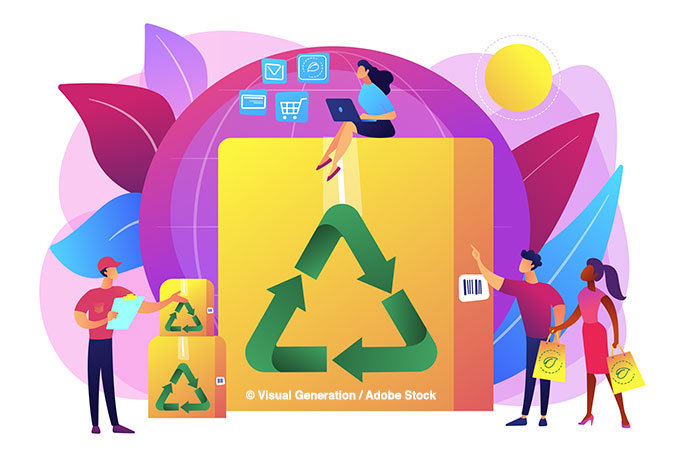
Retailers are on a mission – they not only want to reduce food and product packaging in stores, but they also want to eliminate it completely. Pre-packaging was introduced with the invention of plastics and as a means to sell more product at one time. Plastics not only end up in our landfills, and washes into our waterways and onto our beaches. Or, it finds its way to the bottom of our oceans, adversely affecting a large number of ecosystems. Prior to and without pre-packaging, people would buy what they would use, organically reducing food waste.
This practice continues throughout Europe, the Middle East, and other countries as well as in South America and African Nations. People buy fresh and only what they need. While some Westernized societies may perceive this as backward time travel, there is something to be said for the sustainability of this practice as more people are joining the movement.
Is Zero-Waste Possible?
From sustainable bamboo and eucalyptus sourced bedding that saves thousands of gallons of water to bamboo toilet paper that has saved over 8k tons of greenhouse gases and 50k trees, zero waste is on the rise.
Every bit of food waste we can keep out of landfills contributes to reducing greenhouse emissions and helps in our planet’s recovery. When food waste breaks down, it releases unburned methane, trapping heat in the atmosphere that contributes to global climate change.
Food waste is at the top of the list for innovative solutions. Companies are becoming more involved and taking on the task as well as seeking ways to improve sustainability in food products to cut down on food waste. The Kellogg Company, for example, is turning rejected cereal into beer to reduce food waste.
Circular Platforms – Reusable Packaging
Circular platforms are some of the most-discussed applications. Reusable packaging has been top of mind for retailers for quite some time now. Two retail industry giants, Kroger and Walgreens, are in the test phases of a new eco-model called the “Loop.” It will utilize reusable packaging for a variety of products in a zero-waste online circular shopping platform.
The variety of products being offered include everything from household products to health and beauty care to your usual grocery items – all in reusable containers. The empty containers are then collected from your doorstep, cleaned, and reused – real-time recycling! NY, NJ, PA, MD, and DC are amongst the first US cities that launched the Loop; France and Britain will be rolling it out soon as well!
The Loop
This brainchild of Tom Skazy, CEO and Founder of Loop and TerraCycle brought some of the most brilliant companies in transportation and logistics as well as some foremost consumer goods companies. Together they aim to offer a closed-loop, sustainable circular platform shopping model utilizing recyclable packaging. Many name brand products are being offered, and product selection is expected to increase over time.
Food waste is rampant in many countries while in other countries, food resources are becoming stressed, especially with the adverse effects of climate change. Circular platforms, responsible and sustainable food production, as well as zero-food waste, will need to be embraced on a much larger scale to succeed. Buying bulk items in your own containers or in recyclable ones such as the Loop offers is just one more way to accomplish this.




































































































































 Three Ways to Engage Teams and Clients to Maximize Your Recycling Program Engagement
Three Ways to Engage Teams and Clients to Maximize Your Recycling Program Engagement  How to Integrate Accessibility Into Your Sustainability Planning
How to Integrate Accessibility Into Your Sustainability Planning  Why Park Benches Can Promote Workplace Well-Being
Why Park Benches Can Promote Workplace Well-Being 
